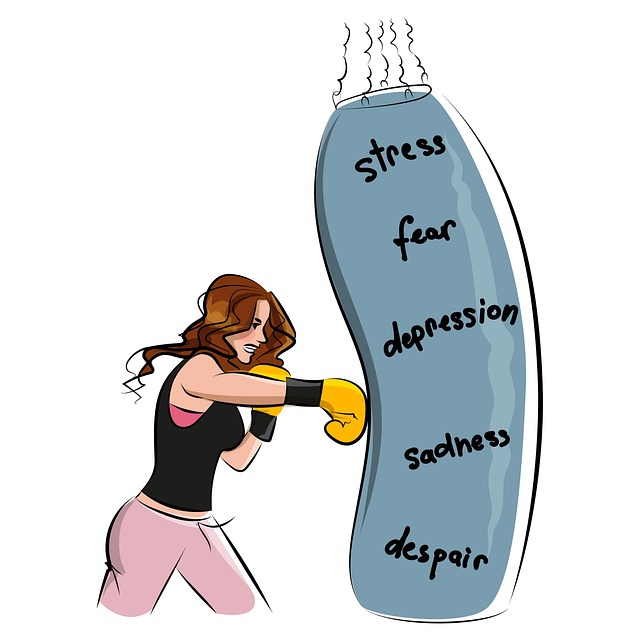Risk assessment, a cornerstone of harm minimization strategies, is enhanced by Parker Gambling Therapy's comprehensive approach. This method, incorporating cultural competency and mental wellness coaching, dynamically evaluates potential hazards and their impacts on individuals and communities. By combining cognitive-behavioral techniques with stress management as a key strategy, Parker Gambling Therapy empowers mental health professionals to address gambling addiction and improve client outcomes. Evidence-based practices, including mindfulness, facilitate effective harm reduction planning, while regular monitoring through data and feedback ensures success. The Mental Wellness Podcast Series can disseminate these insights, promoting better emotional healing and informed harm minimization strategies.
Risk assessment and harm minimization planning are vital components in addressing gambling-related issues. This comprehensive guide explores these strategies, starting with understanding risk assessment as a foundational step for harm minimization. We delve into the integral role of Parker Gambling Therapy in crafting effective plans, offering evidence-based approaches to mitigate risks. Furthermore, we discuss implementing and monitoring strategies, emphasizing their significance in achieving successful long-term outcomes through tailored interventions, particularly in the context of Parker Gambling Therapy.
- Understanding Risk Assessment: A Foundation for Harm Minimization
- The Role of Parker Gambling Therapy in Developing Comprehensive Plans
- Implementing and Monitoring Strategies for Effective Harm Reduction
Understanding Risk Assessment: A Foundation for Harm Minimization

Understanding Risk assessment is a fundamental step in implementing effective harm minimization strategies, a key area of focus for professionals like those at Parker Gambling Therapy. It involves meticulously evaluating potential hazards and their likely impact on individuals or communities, enabling proactive measures to mitigate negative consequences. By thoroughly assessing risks, healthcare providers can identify vulnerabilities specific to each client, be it gambling addiction or other complex issues.
This process goes beyond mere identification; it includes analyzing the likelihood and severity of anticipated harms, considering various contextual factors such as personal history, cultural background, and social environment. Incorporating concepts from Healthcare Provider Cultural Competency Training, Coping Skills Development, and Mental Wellness Coaching Programs Development, risk assessment becomes a dynamic tool that supports personalized interventions. This holistic approach ensures that harm minimization planning is not only effective but also sensitive to individual needs and diverse cultural contexts.
The Role of Parker Gambling Therapy in Developing Comprehensive Plans

Parker Gambling Therapy plays a pivotal role in developing comprehensive harm minimization plans. This therapeutic approach, pioneered by experts in mental health and addiction, offers structured strategies to address gambling-related issues. By integrating principles from cognitive-behavioural therapy, Parker Gambling Therapy helps individuals recognize harmful patterns, modify behaviours, and develop coping mechanisms that promote mental wellness.
In the context of risk management planning for mental health professionals, this therapy is invaluable. It equips practitioners with tools to assess clients’ gambling habits, understand the underlying causes of their addiction, and craft tailored interventions. Moreover, it emphasizes stress management as a crucial component in mitigating risks associated with problematic gambling. Through this holistic approach, Parker Gambling Therapy ensures that both individuals and healthcare providers are equipped to navigate complex situations effectively, fostering better outcomes for those struggling with gambling-related issues.
Implementing and Monitoring Strategies for Effective Harm Reduction

Implementing strategies for effective harm reduction is a multifaceted process that requires careful consideration and continuous monitoring. At its core, this involves utilizing evidence-based practices tailored to address specific risks. For instance, Parker Gambling Therapy offers valuable insights into managing compulsive gambling behaviors, focusing on cognitive behavioral therapy and mindfulness techniques. By integrating these methods, individuals can develop healthier coping mechanisms and enhance their emotional intelligence, thereby reducing potential harm associated with risky behaviors.
Regular monitoring is pivotal in ensuring the success of harm reduction efforts. This includes tracking progress through frequent assessments, evaluating the impact of interventions, and making data-driven adjustments to strategies. Incorporating feedback from both clients and therapists into this monitoring process facilitates continuous improvement in emotional healing processes. The Mental Wellness Podcast Series Production can serve as a platform for sharing these insights, providing guidance, and fostering awareness about available resources, ultimately contributing to more effective harm minimization planning.
In conclusion, risk assessment and harm minimization planning are paramount in addressing problematic gambling behaviors. By understanding the foundational principles of risk assessment, leveraging strategies from Parker Gambling Therapy, and implementing effective monitoring systems, professionals can develop comprehensive plans for reducing gambling-related harms. These integrated approaches ensure a holistic and evidence-based strategy to support individuals affected by gambling disorders, fostering better outcomes and enhanced well-being.














